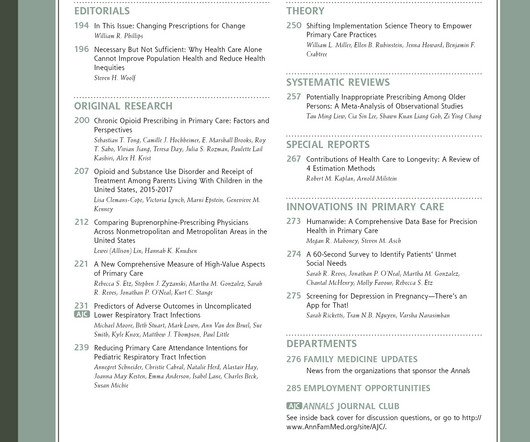Overall medication adherence as an indicator for health outcomes among elderly patients with hypertension and diabetes [Diabetes and endocrine disease]
Annals of Family Medicine
NOVEMBER 20, 2024
Methods The study included individuals aged 75 to 90 years, diagnosed with diabetes or hypertension, who were treated with at least one antihypertensive, or antidiabetic medication in 2017. We determined personal adherence rates by calculating the mean adherence rates of the medications prescribed to each individual.












Let's personalize your content